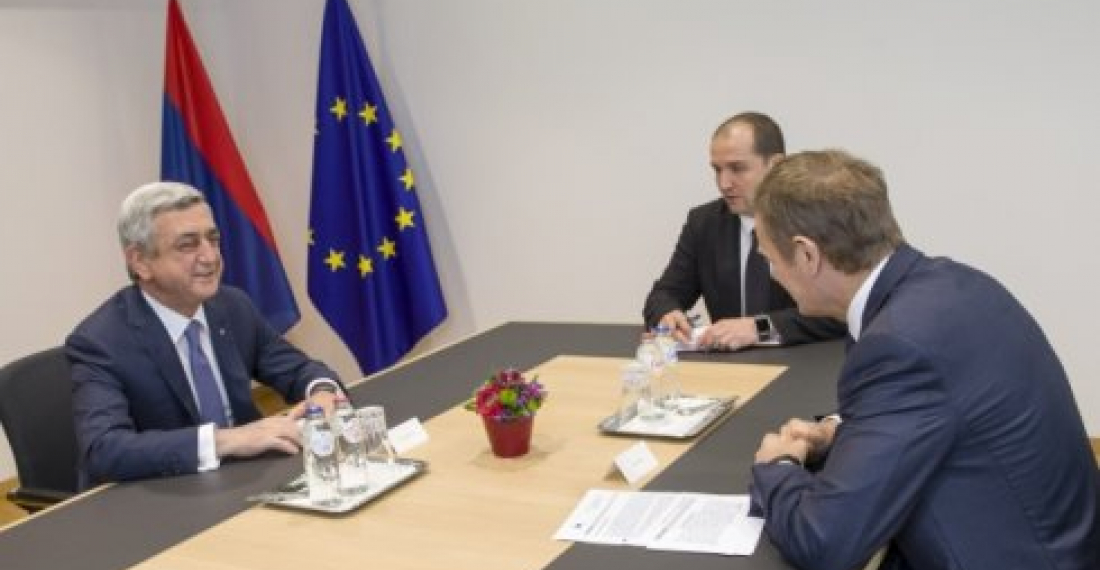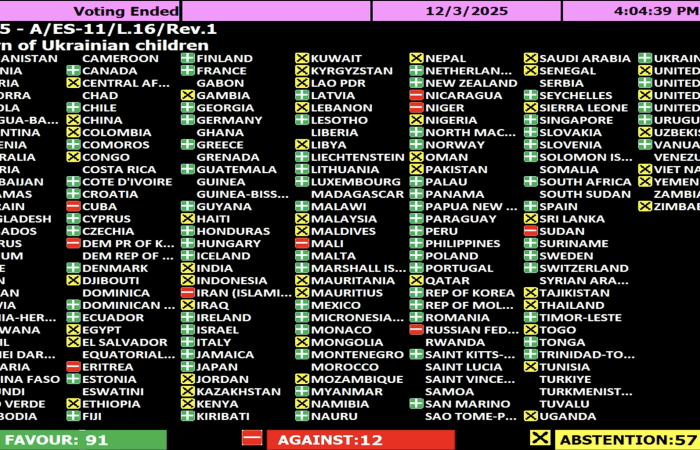The president of the European Union Council, Donald Tusk, and the President of Armenia, Serzh Sargsyan, discussed the Nagorno-Karabakh conflict today when they met in Brussels. Speaking at a press briefing afterwards, Donald Tusk said,
The status quo is unsustainable. The conflict needs an early political settlement in accordance with international law. It does not have a military solution. The EU continues to fully support the mediation efforts and proposals of the OSCE Minsk Group Co-Chairs.
Welcoming the Armenian President, President Tusk said "Armenia whose independence, sovereignty and territorial integrity we support is an important partner for the European Union." President Tusk announced the conclusion of negotiations on the new EU-Armenia Comprehensive and Enhanced Partnership Agreement. He said that this new agreement "will broaden the scope of our relations, taking into account the new global, political and economic interests we share and challenges we want to face together."
"We are looking forward to stronger cooperation in sectors such as energy, transport and the environment, for new opportunities in trade and investments, and for increased mobility for the benefit of our citizens. We have discussed today our shared values including our commitment to democracy, human rights, and the rule of law, which underpin the new agreement and our future cooperation", President Tusk added.
source: commonspace.eu
photo: The President of the EU Council, Donald Tusk, with the President of Armenia, Serzh Sargsyan in Brussels on 27 February 2017.






